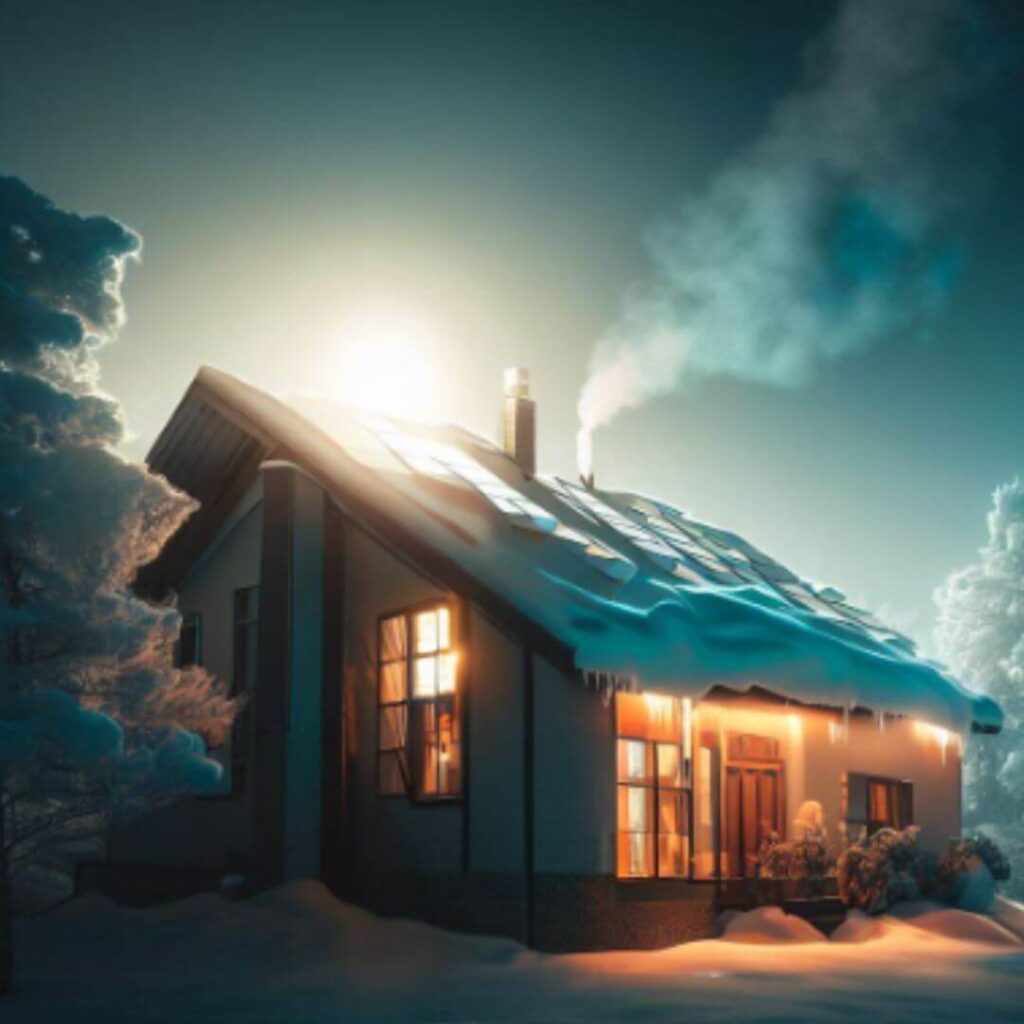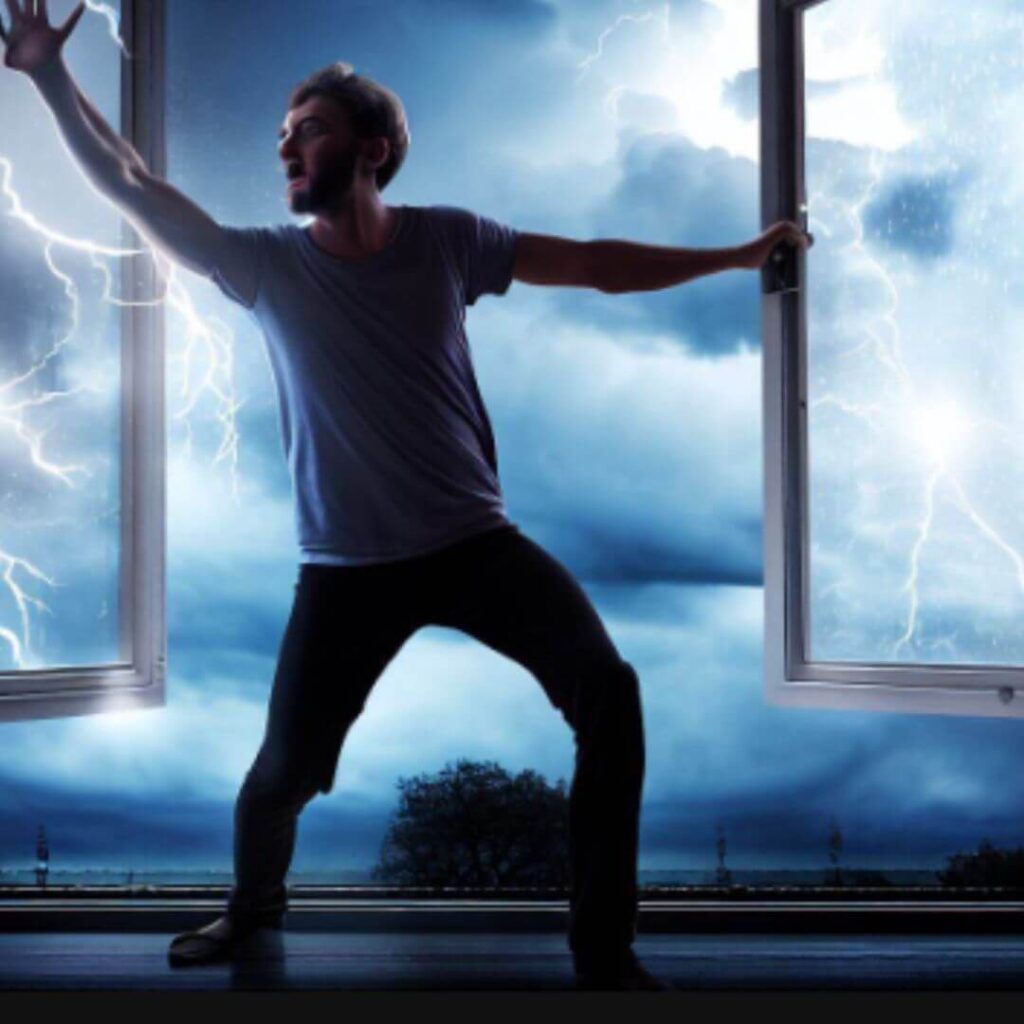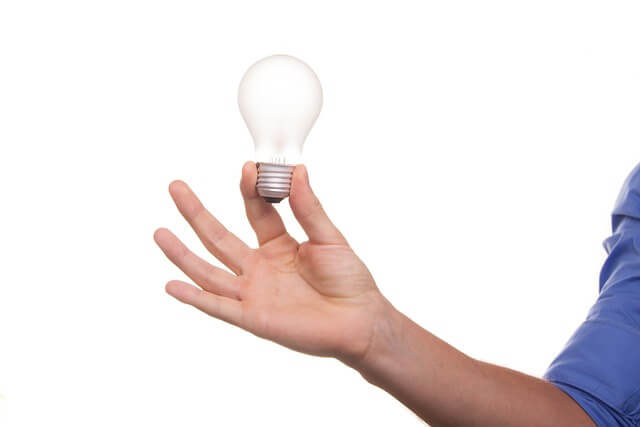The arrival of winter isn’t just the perfect time to snuggle up by your fire with some hot cocoa and a good book it’s also an ideal opportunity to make your home more energy efficient so you spend less on heating bills during the cold months and reduce your carbon footprint, too.

Here are nine easy ways to do just that!
Table of Contents
Don’t heat extreme places
Heating the entire house unnecessarily is a waste of money and energy. It would be best if you only heated the rooms you use at any time, such as your bedroom or living room.
If any other rooms need to be heated, use a space heater instead of the central heating system. It Cheaper in the long run.
Add extra insulation
You can save energy and money by insulating your home in many ways. Adding extra insulation is one of the most cost-effective ways to do this!
There are many different types of insulation, so it’s essential to choose the right style for your home.
Here are some things you should know about adding insulation:
- You should only consider adding exterior insulation if it’s a newer home because it’s difficult and expensive.
- If you have a newer home, purchase an R-value (the higher the number, the better).
- For older homes, purchase an R-value twice as high as your current R-value.
- Remember attic insulation!
Read more about : 10 Tips To Lower Your Electricity Costs and Save on Your Electricity Bill
Get storm windows

Storm windows are an affordable and easy way to make your home energy efficient during winter. Storm windows are typically made of vinyl or aluminum so they won’t chip or break like traditional glass windows.
You can find storm window frames at your local hardware store and have them installed in just a day. To ensure you’re buying the right storm window frame for your home, measure the opening of your window first. Storm window frames come in different sizes, including but not limited to 24, 36, 48, and 60.
Use drapes or curtains

Curtains and drapes can help insulate windows and keep the heat in your home. They also provide an extra layer of protection for windows during winter storms.
Place exterior insulation on the side of your house that faces north or east, as these are the two sides that receive less sunlight throughout winter months and are more likely to lose heat quickly.
Insulating your attic will reduce heat loss through the roof and prevent moisture from condensing on cold surfaces inside your home like pipes, walls, ceilings, and floors – It can result in the formation of mould and unhealthy living circumstances.
Service your HVAC system
You should service your HVAC system annually, but if you’re looking for a quick way to save on energy costs this winter, consider these tips for making your home more energy efficient:
- Your furnace’s filters should be cleaned or changed every three months.
- Install a programmable thermostat that automatically turns the heat down when you’re not at home or asleep.
- Install storm windows and doors.
- Replace drafty windows with low-E vinyl replacement windows with insulated frames.
- Seal any cracks and gaps in window frames with weather stripping caulk or foam sealant before installing storm windows and doors.
- Replace single-pane glass with double-pane glass in all exterior doors and windows, including basement windows accessible outdoors.
Use a humidifier
A humidifier makes your home more comfortable by regulating the temperature, increasing humidity, and reducing the risk of dry skin, nosebleeds, and throat irritation.
A humidifier can also help control asthma and allergies, especially if you have a family member with these conditions.
The best time to run a humidifier is during the night or when you’re asleep because it’s less likely that you’ll notice any noise.
If your water has minerals (making it harder for the machine to produce moisture), use distilled water or boil tap water before running your humidifier.
It’s best to have a humidifier running at a manageable capacity all day long because this can lead to mold growth on surfaces in your home and may even cause mildew on furniture fabrics.
Use a well-insulated door
Insulating is one of the most important ways to make your home more energy efficient. A well-insulated door can help seal in heat and keep out cold air.
If replacing your door, it’s always a good idea to get a new one pre-insulated. Regarding installation, don’t put too many screws and bolts through the door, as this will compromise its insulation qualities.
Consider a pellet stove
Consider a pellet stove if you have an old stove that uses a lot of fuel. Pellet stoves are inexpensive compared to most other types of stoves, but they can save money in the long run by using less energy than traditional stoves and taking up less space.
Also, because pellet stoves burn cleaner than conventional models, they emit fewer greenhouse gases into the atmosphere. You’ll also find that pellets are about $1 per pound cheaper for heating your home.
line-dry your clothes
Line-drying your clothes is an excellent way to reduce your carbon footprint and save money on your electricity bill. Using a clothesline or drying rack, you can easily line-dry your laundry outside in the sun.
Plus, there are plenty of health benefits that come from line drying. Line-drying reduces the number of toxic chemicals from household products that can cause cancer and other diseases released into the air when we use our dryer. Line drying also helps reduce bacteria growth which can cause asthma, allergies, chronic obstructive pulmonary disease (COPD), and sometimes even pneumonia.
FAQ
- How can I make my home more energy efficient during the winter?
- Implement energy-saving measures such as improving insulation, sealing air leaks, using programmable thermostats, and optimizing heating system efficiency.
- Is it worth investing in insulation for my home?
- Yes, proper insulation helps to reduce heat loss and keeps your home warmer in the winter. It can result in significant energy savings and improved comfort.
- Should I seal air leaks in my home, and how can I do that?
- Yes, sealing air leaks prevents cold drafts and heat loss. Common areas to seal include windows, doors, electrical outlets, and gaps around pipes. Use weatherstripping, caulking, or other sealants to close these gaps.
- How can I use a programmable thermostat to save energy?
- A programmable thermostat allows you to set specific temperatures for different times of the day, enabling you to reduce heating when you’re not at home or during nighttime. This helps save energy and lowers heating costs.
- What are some energy-efficient heating options for winter?
- Efficient heating options include using high-efficiency furnaces or boilers, heat pumps, or considering alternative heating sources like pellet stoves or radiant floor heating.
- Can adjusting the temperature of my water heater save energy?
- Yes, lowering the water heater temperature to around 120 degrees Fahrenheit (48 degrees Celsius) can reduce energy consumption and still provide hot water for your needs.
- Are there energy-saving tips for using fireplaces or wood-burning stoves?
- Use fireplace inserts or wood-burning stoves that are certified for efficiency, close the damper when not in use, and make sure the chimney is clean to maximize heat output and minimize heat loss.
- Should I cover my windows during winter to save energy?
- Yes, covering windows with thermal curtains, blinds, or window films can help insulate the windows, reduce heat loss, and improve energy efficiency.
- Are there any energy-saving practices for lighting during winter?
- Switch to energy-efficient LED bulbs, use task lighting instead of lighting up the entire room, and remember to turn off lights when not in use to conserve energy.
Remember, the energy savings achieved may vary depending on factors like the size and condition of your home, local climate, and individual energy usage habits. It’s recommended to assess your own home’s energy needs and consult with energy experts or utility providers for personalized advice on making your home more energy efficient during the winter.
10. does aluminum conduct electricity
Yes, aluminum is a good conductor of electricity. It has approximately 61% conductivity of copper, which is one of the best electrical conductors. Aluminum is commonly used in electrical wiring, power transmission lines, and various electrical applications due to its favorable electrical conductivity and cost-effectiveness.
